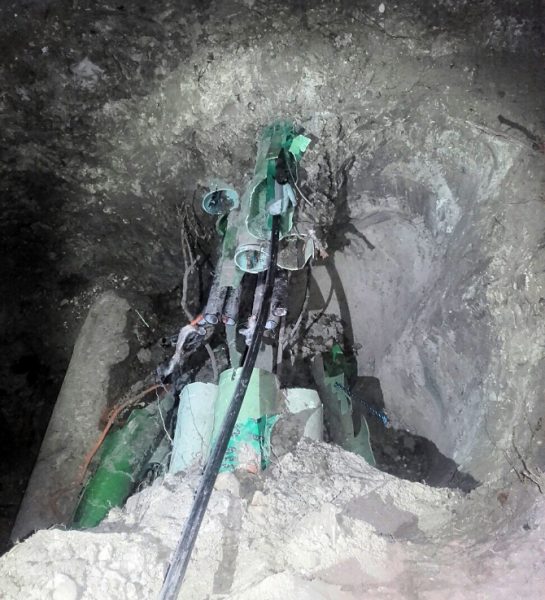NIC Seeks Stress Tests of UK Broadband and Mobile Infrastructure

The National Infrastructure Commission (NIC) has today published a new report that examines the issue of infrastructure resilience in the face of major disruption (floods, power cuts etc.), which among other things recommends that digital (mobile and broadband etc.) infrastructure may benefit from new standards and stress testing.
At present the UK communications regulator, Ofcom, is responsible for setting General Conditions (GC) that require broadband ISPs and mobile operators to deliver various standards, such as requiring them to maintain uninterrupted access to the emergency services (e.g. Police, Ambulances etc.) “to the greatest extent possible” (this is strongly enforced and fines for failure are common – here and here).
On top of that the regulator has also set various Minimum Service Level (MSL / Quality of Service) targets for Openreach to meet in terms of repairs and new line provisions. However it should also be said that some of the regulator’s other rules, such as the Broadband Speed Code of Practice and Automatic Compensation, are semi-voluntary and as such tend to only be adopted by the largest and a few medium sized ISPs.
Advertisement
Elsewhere local highway and planning authorities also hold some responsibility for ensuring that any new cables going into the ground, as well as mobile masts that get erected, are correctly delivered. But the involvement of such authorities is limited to the physical infrastructure delivery itself and doesn’t extend to network testing etc.
Nevertheless the NIC’s report – ‘Anticipate, React, Recover: Resilient Infrastructure Systems‘ – warns that the UK’s “generally robust historic resilience” may be challenged in future by a range of factors that will not always be possible to foresee, alongside better understood challenges like climate change.
In short, the NIC proposes to include digital, energy, water, road and rail infrastructure into a new framework that could help to ensure future resilience via clear standards, which would ensure “systems are tested regularly and that operators take action to deliver resilience both now and in the future.”
Sir John Armitt, Chair of the NIC, said:
“The Commission pays tribute to all those who are helping to minimise the impact to infrastructure during this period, often at significant personal risk.
While this report draws on evidence collected before the pandemic, this study can inform thinking about the recovery and help ensure that we can be resilient to future challenges.
To safeguard the systems our communities rely on, everyone involved in running infrastructure needs to anticipate and prepare for potential future challenges. The framework proposed in our report offers the tools to face uncomfortable truths, value resilience properly, test for vulnerabilities and drive adaptation before it is too late.”
The report itself is typically quite general and doesn’t really spend much time examining the particular challenges of digital infrastructure in any real detail, although it does provide some general recommendations that offer a useful overview of their proposed approach and time-scale.
Advertisement
Recommendations – Infrastructure Resilience
Recommendation 1: Government should introduce a statutory requirement by 2022 for Secretaries of State to publish:
– clear, proportionate and realistic standards every five years for the resilience of energy, water, digital, road and rail services
– an assessment of how existing structures, powers and incentives enable operators to deliver these standards or where changes are needed.
Regulators should introduce obligations on infrastructure operators to meet these resilience standards by 2023.
Recommendation 2: Regulators should require a system of regular stress testing by 2024 for energy, water, digital, road and rail infrastructure operators, to ensure that infrastructure operators’ systems and decision-making can credibly meet resilience standards for infrastructure services.
Regulators should introduce obligations by 2023 on infrastructure operators to require them to participate in stress tests and to require remedial action in case of failure of stress tests.
Recommendation 3: Energy, water, digital, road and rail infrastructure operators should develop and maintain strategies to ensure infrastructure services can continue to meet resilience standards in the long term. To ensure this, regulators should:
– introduce obligations by 2023 on infrastructure operators to require them to develop and maintain long term resilience strategies (where there is no current requirement)
– set out, in future price reviews, how their determinations are consistent with meeting standards of resilience in both the short and long term.
Requiring mobile and broadband operators to undertake “regular stress testing” is certainly possible, although at this stage we’re not entirely sure how the NIC sees this as being applied to digital infrastructure or what it is they would want to test (capacity, latency, stability, end-user speeds etc.). The stress tests would broadly be intended to assess the systems’ “ability to resist, absorb, and recover from shocks and stresses, and identify vulnerabilities,” which is quite broad.
Such tests would be overseen by regulators, and infrastructure operators should demonstrate that their systems and decision-making can “credibly meet resilience standards for infrastructure services against a wide range of shocks and stresses.” The regulators would naturally also require infrastructure operators to address any vulnerabilities identified.
Mark is a professional technology writer, IT consultant and computer engineer from Dorset (England), he also founded ISPreview in 1999 and enjoys analysing the latest telecoms and broadband developments. Find me on X (Twitter), Mastodon, Facebook, BlueSky, Threads.net and Linkedin.
« Wireless ISP Wildanet Offers 3 Months Free to Businesses





















































Comments are closed